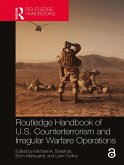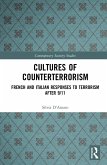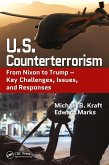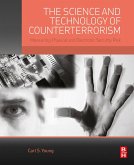This two-volume set examines modern nation-state legislative, diplomatic, military, and non-military attempts to combat terrorism within and outside state borders. The articles which comprise this comprehensive reference work address counterterrorism efforts employed by the international community prior to and following the events of September 11, 2001.
Global terrorism in the 21st century threatens the foundations of secular democracies and directly challenges global security thereby raising new and critical issues that transcend national borders. This two-volume reference carefully examines threats such as Weapons of Mass Destruction (WMD) terrorism, agro-environmental terrorism, and energy-related terrorism, and discusses technologies and strategies-such as the use of biometrics, data mining, information systems, psychological profiling, and terrorists rehabilitation efforts-to mitigate these threats.
Counterterrorism: From the Cold War to the War on Terror provides an easy-to-read discussion of some of the principal issues involved in combating contemporary terrorism. Information is presented in non-technical language, making it appealing to the general reader as well as a solid reference for undergraduate college students and researchers. Following each article are references to other articles of interest and a comprehensive index facilitates access to specific subject material. The second volume includes a compilation of significant national and international treaties, laws, conventions, and protocols that have been implemented in an attempt to counter these ongoing threats to domestic and international security.
Hinweis: Dieser Artikel kann nur an eine deutsche Lieferadresse ausgeliefert werden.
Global terrorism in the 21st century threatens the foundations of secular democracies and directly challenges global security thereby raising new and critical issues that transcend national borders. This two-volume reference carefully examines threats such as Weapons of Mass Destruction (WMD) terrorism, agro-environmental terrorism, and energy-related terrorism, and discusses technologies and strategies-such as the use of biometrics, data mining, information systems, psychological profiling, and terrorists rehabilitation efforts-to mitigate these threats.
Counterterrorism: From the Cold War to the War on Terror provides an easy-to-read discussion of some of the principal issues involved in combating contemporary terrorism. Information is presented in non-technical language, making it appealing to the general reader as well as a solid reference for undergraduate college students and researchers. Following each article are references to other articles of interest and a comprehensive index facilitates access to specific subject material. The second volume includes a compilation of significant national and international treaties, laws, conventions, and protocols that have been implemented in an attempt to counter these ongoing threats to domestic and international security.
Hinweis: Dieser Artikel kann nur an eine deutsche Lieferadresse ausgeliefert werden.









